Bob Dylan Wins Nobel Prize In Literature
0000000000
In what appears to be a first, Bob Dylan was awarded the Nobel Prize in Literature for his long career of songwriting:
Bob Dylan, the poet laureate of the rock era, whose body of work has influenced generations of songwriters and been densely analyzed by fans, critics and academics, was awarded the Nobel Prize in Literature on Thursday.
It is the first time the honor has gone to a musician. In its citation, the Swedish Academy credited Mr. Dylan with “having created new poetic expressions within the great American song tradition.”
The choice of Mr. Dylan for the world’s top literary honor came as something of a surprise and was widely viewed as an expansion of the academy’s traditional notions of art. Mr. Dylan, 75, joins a pantheon that includes T. S. Eliot, Gabriel García Márquez, Samuel Beckett and Toni Morrison — the last American to claim the award, in 1993.
“The old categories of high and low art, they’ve been collapsing for a long time,” said David Hajdu, a music critic for The Nation who has written extensively about Mr. Dylan and his contemporaries, “but this is it being made official.”
In choosing a popular musician for one of the most coveted prizes in the literary world, the Swedish Academy dramatically redefined the boundaries of literature, setting off a debate about whether song lyrics have the same artistic value as poetry or novels.
“Most song lyrics don’t really hold up without the music, and they aren’t supposed to,” the poet Billy Collins said. “Bob Dylan is in the 2 percent club of songwriters whose lyrics are interesting on the page, even without the harmonica and the guitar and his very distinctive voice. I think he does qualify as poetry.”
In previous years, writers and publishers have grumbled that the academy seems to favor obscure writers with clear political messages over more popular figures — last year’s prize went to the the Belarussian journalist Svetlana Alexievich, whose deeply reported narratives draw on oral history. But in choosing someone so well known and commercially successful, and so far outside of established literary traditions, the academy seems to have swung far into the other direction.
Sara Danius, a literary scholar and the permanent secretary of the 18-member Swedish Academy, which awards the prize, called Mr. Dylan “a great poet in the English-speaking tradition” and compared him to Homer and Sappho, whose work was delivered orally. Asked if the decision to award the prize to a musician signaled a broadening in the definition of literature, Ms. Danius responded, “The times they are a-changing, perhaps,” referencing one of Mr. Dylan’s songs.
The choice was hailed across the cultural and political spectrum. Rosanne Cash, the songwriter and daughter of Johnny Cash, wrote simply: “Holy mother of god. Bob Dylan wins the Nobel Prize.”
Mr. Dylan emerged on the New York music scene in 1961 as an artist in the tradition of Woody Guthrie, singing protest songs and strumming an acoustic guitar in clubs and cafes in Greenwich Village. But from the start, Mr. Dylan stood out for dazzling lyrics and an oblique songwriting style that made him a source of fascination for artists and critics. In 1963, the folk group Peter, Paul and Mary reached No. 2 on the Billboard pop chart with a version of his song “Blowin’ in the Wind,” with ambiguous refrains that evoked Ecclesiastes.
Within a few years, Mr. Dylan was confounding the very notion of folk music, with ever more complex songs and moves toward a more rock ‘n’ roll sound. In 1965, he played with an electric rock band at the Newport Folk Festival, provoking a backlash from folk purists who accused him of selling out.
After reports of a motorcycle accident in 1966 near his home in Woodstock, N.Y., Mr. Dylan withdrew further from public life but remained intensely fertile as a songwriter. His voluminous archives, showing his working process through thousands of pages of songwriting drafts, were acquired this year by institutions in Tulsa, Okla.
His 1975 album “Blood on the Tracks” was interpreted as a supremely powerful account of the breakdown of a relationship, but just four years later the Christian themes of “Slow Train Coming” divided critics. His most recent two albums were chestnuts of traditional pop that had been associated with Frank Sinatra.
I can’t say that I’ve ever been a die-hard Dylan fan. At times, I’ve found his singing style nearly impossible to understand, for example, and folk music is pretty far outside my range of musical taste. That being said, it’s hard to deny his contribution to American, and world, culture. Many of his better known songs, such as “Blowin’ In The Wind,” and “Mr. Tambourine Man,” became major hits for other artists in the 1960s and, to a large degree, his music was an important part of the anti-war and counter-cultural movements that swept across the United States and the West during that period. More so than many of the writers who have won the Nobel Prize for Literature in the past, it also can be said that Dylan left an impact on his craft, and on an American culture that has swept across the globe, and will likely continue to do so for many years to come. For that reason alone, the selection of Dylan as the first songwriter and popular musician to win a Nobel Prize seems to me to be entirely appropriate. In many ways, the words he drafted work as poetry as well as they as music, and that’s the signature of a great song.
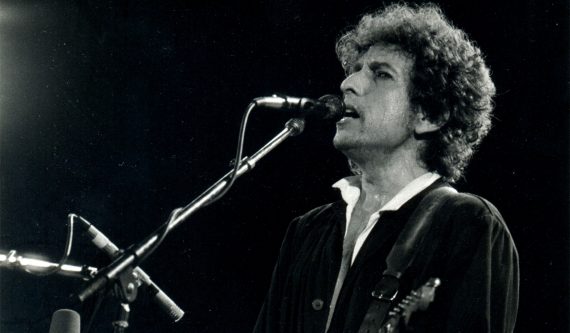

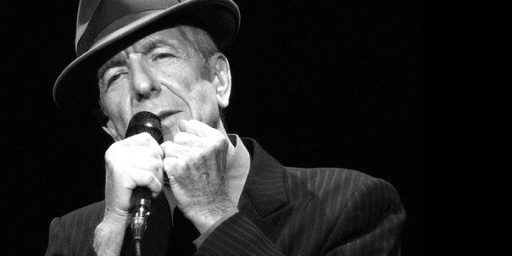
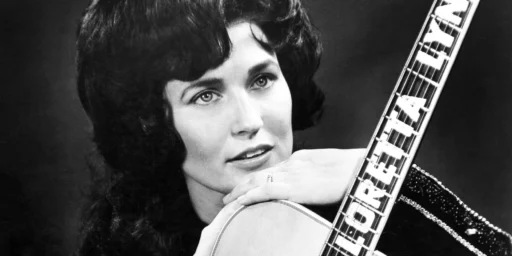
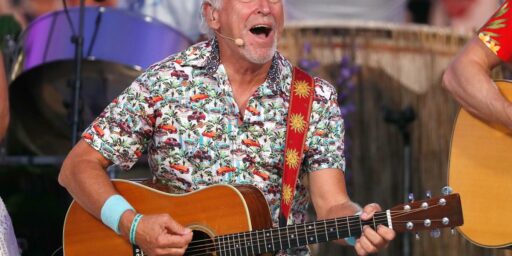
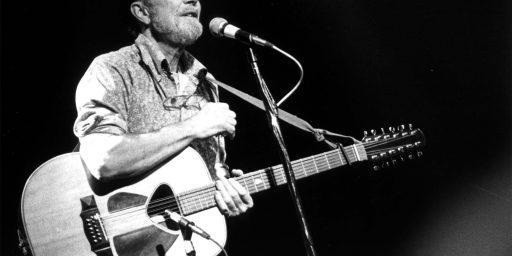
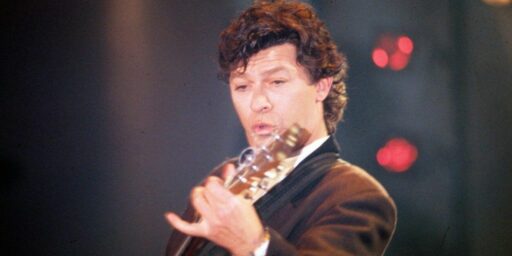
I coulda’ wrote that…
@Mister Bluster:
But–and this is the salient point–you didn’t. 😀
@CSK:..You’re just saying that to hurt me.
For the times they are a changing Classic. The answer my friends are blowing in the wind. Love it.
Tom Lehrer misspoke at the time of the award of the Peace Prize to Kissenger. Now, irony is dead.
I forgot my favorite Dillon song positively 4th st. You got a lot of nerve to say you are my friend, when I was down you just stood their grinning.
@Mister Bluster:
Mais oui. Je suis la belle dame sans merci.
One of the blessings that Jews can bring to the world is to lift up it’s arts, enrich it’s culture, leave a lasting positive imprint on literature. In every one of these measurements, Bob Dylan(Robert Zimmerman)) has established himself as a legend, promoting a message of peace and social justice. A true giant in the entertainment world, so deserving of this great honor and award.
@Paul Hooson: I second that
Despite this going to someone probably undeserving…
this is one of the least controversial Nobel prizes.
Non-issue, conservatives can go away now.
edit: I mean “undeserving” in that can song lyrics be literature? This may be splitting hairs, but he’s being graded on a curve, and true poets can justifiably be upset by this…also, if you’re doing Dylan today, is Kendrick Lamar next? My point is songwriters get to collaborate and get feedback on their performances in a way writers cannot…
so…is this Literature?
Dylan’s voice, his ideas, his music is immortal. I have seen him perform five times. He is a cultural colossus.
My love speaks in silence without ideals of violence.
I agree with Doug: Dylan can’t sing a lick, but his lyrics are wonderful.
Still, not sure it’s literature, though. Seems a stretch, but his songs have been heard far more than most of the other Nobel Prize winners’ books have been read.
@Lit3Bolt:
Agreed. I love his music, but calling it literature really is a stretch.
@Lit3Bolt: @stonetools: @HarvardLaw92:
You’re all correct. It’s not literature as we’ve understood literature for some hundreds of years now. Poetry originated as music, but the two arts diverged long ago. We read, or have read to us, poetry, which stands alone either way. A song requires music (instruments), which can either kill the lyric (if bad) or raise it to exalted heights (if good).
I disagree. Lyrics are poetry.
@Steven L. Taylor:
Sure, in the sense that song lyrics follow some traditional poetic conventions (rhyme and usually iambic pentameter, because there’s a tendency to fall into that naturally). But they’re still two separate arts. Yeats didn’t write “Among School Children” to be sung. Dylan wrote what he wrote to be sung, and accompanied by instruments. There’s a difference in intent and execution.
I have to say, even among his generation of pop/rock lyricists I wouldn’t have picked Dylan for the Lit prize over (say) Paul Simon or Ian Anderson. This is a very odd selection. It’ll be interesting to see 10 years from now whether it turns out to have been the Sign of Things To Come or an inexplicable oddity.
Not a bad choice, all in all.
Other than Dylan doesn’t need the exposure or the money, and I vaguely recall Alfred Nobel wanting his award to act as encouragement rather than as a reward. Of course, its even worse in the sciences; by the time you win the award your creative days are long, long gone.
I look forward to Jay-Z or Taylor Swift being awarded the Nobel Prize in 20 years.
Dylan’s lyrics, minus the music, are simply not that interesting. They are five steps from Spinal Tap, but longer and more redundant and clunky.
Thomas Pynchon has put in his novels hundreds of songs. There’s no music. But they are all better than any exercise in crap symbolism than Dylan stumbled into.
Pynchon, obviously, more than any American writer deserves a win, though I doubt he would care. But this seems more like an attempt to punk Philip Roth–‘He’s in his 70s, American, and Jewish’–Roth stands up, and the spotlight glides right by him–‘…Bob Dylan.’
@HarvardLaw92: I disagree His words spoke to us, music was just a plus. Sometimes a song has a way of getting through. Where just words fall flat.
@CSK:
They can be, but not necessarily. Take the Biblical Psalms. They were originally the words to songs, but the tunes were lost over time and they came to be seen essentially as poetry…but later, people gave them new melodies. Are they, therefore, songs or poems? It’s true that most poems aren’t written to be sung, whereas song lyrics are, but that doesn’t make it some absolute division.
Literature = written works. If Dylan’s lyrics were evaluated independently from the music, then of course they can be judged as literature.
Most rock lyrics don’t work well as poetry in the absence of music — some lyrics that work well within the context of a song can sound pretty ridiculous without music — but the best Dylan material can stand on its on. The same can be said of Joni Mitchell’s best work, but I have a difficult time thinking of too many others who have written lyrics that can be regarded as poetry.
(Jim Morrison aspired to be a poet and made a sincere effort to become one, but he often fell short and didn’t quite make it.)
@Pch101:
Leonard Cohen, but I doubt he would have been happy to receive such an award. He was, of course a published poet and always saw his music career as something wholly apart.
@Pch101:
I’m actually surprised that the first pop music Nobel didn’t go to a rapper.
Dylan’s lyrics as Literature? There’s good arguments on both sides. But what about rap? The lyrics are primary and the music usually just serves to impose a rhythmic structure. I’m not a huge fan but there are pieces that are in my rotation list and I would make the argument that poetry is alive and well in the US, a huge money maker, but it’s called rap now.
@DrDaveT: “I have to say, even among his generation of pop/rock lyricists I wouldn’t have picked Dylan for the Lit prize over (say) Paul Simon or Ian Anderson. This is a very odd selection.”
Seriously? Ian Anderson? How many of Jethro Tull’s immortal lines are now essential parts of American discourse as so many of Dylan’s have become? How much influence has Jethro Tull had on the world of music and lyrics?
You can quibble about whether what Dylan does is “literature” — personally I think that’s as dumb as argument as saying that movies aren’t art — but to fail tor recognize Dylan’s place as the only one deserving of this award if we accept that the genre qualifies is just elevating one’s personal taste above any objective standard of judgment.
Kevin Drum has an interesting perspective on this. It seems that the last American to get the prize was in 1993 and there has been increasing criticism over the number of obscure Europeans who win. He feels that this is a way to award the prize to an American without having to award it to an American book or poetry author.
Looking at some of the past winners — Gunter Grass, John Steinbeck, Toni Morrison, William Faulkner, Ivo Andric, Czeslaw Milos — Bob Dylan fits in well. His work has become one of the tentpoles of the culture and speaks to universal human themes. Perhaps the Nobel Prize should have come with a disclaimer stating that they are not celebrating the Christmas album, but other than that, it seems like a good choice.
The debate over whether song writing counts as literature is kind of silly. Of course it is literature. Yes, most songs are insipid, but most novels are terrible.
But, I also think some of Dylan’s most interesting and relevant work has been produced since 2000, so I may have some kind of brain parasite.
@wr: I love Tull (which IMHO has much more interesting *music* than Dylan), but totally agree with you that their lyricism does not approach Dylan’s. And certainly not the influence, although I’m not sure that’s part of the Nobel criteria.
@CSK:
True, and I accept the fact that the music augments the words. Still, I don’t think that takes away from the inherent poetry of said lyrics.
I keep thinking of Paul Simon, whose body of work in terms of just the words is impressive. And I agree very much with comment above about rap.
The great thing about this conversation, however, is that the fate of the nation doesn’t hang in the balance. 🙂
So, I am going to stick my guns: lyrics are poetry!
@Steven L. Taylor:
This is wonderful: a civilized discussion of art rather than a discussion about…Donald Trump.
I don’t disagree that lyrics are poems, just that there’s been some divergence in the execution. For which, by the way, we should all give thanks, because it gives us more to enjoy in different ways.
@CSK: Right On
@DrDaveT: I liked all of those you mentioned too. Too many more to mention, but it opens the door.
“…..and if my thoughts could all be seen
…they would stick my head in a guillotine…..
@DrDaveT:
I honestly can’t think of a rapper with the depth and breadth of material who would be worthy of a literature award. Music, yes, but not literature.
@wr:
Since when is the Nobel Prize for Literature about how many lines from your work have worked their way into everyday discourse? Shall we give L. Frank Baum a retrospective Nobel?
Even granting that, how many Dylan lines are now “essential parts of American discourse”? I can think of two or three, and “everybody must get stoned” hardly sets my poet’s soul on fire.
Considered solely as poetry, the lyrics of (say) Thick as a Brick, or The Minstrel in the Gallery, or Skating Away (on the Thin Ice of a New Day), or The Witch’s Promise seem much more deserving to me than any of the Dylan songs I know. Maybe I just don’t know the right songs; which ones should I be looking at?
(And I still think Paul Simon has a better claim than either of them…)
@DrDaveT:
“Thick As a Brick” was a spoof on progressive rock. The lyrics weren’t meant to be taken seriously.
Here are two poems from two of my favorite 20th century poets:
Questions of Travel — Elizabeth Bishop
There are too many waterfalls here; the crowded streams
hurry too rapidly down to the sea,
and the pressure of so many clouds on the mountaintops
makes them spill over the sides in soft slow-motion,
turning to waterfalls under our very eyes.
– For if those streaks, those mile-long, shiny, tearstains,
aren’t waterfalls yet,
in a quick age or so, as ages go here,
they probably will be.
But if the streams and clouds keep travelling, travelling,
the mountains look like the hulls of capsized ships,
slime-hung and barnacled.
Think of the long trip home.
Should we have stayed at home and thought of here?
Where should we be today?
Is it right to be watching strangers in a play
in this strangest of theatres?
What childishness is it that while there’s a breath of life
in our bodies, we are determined to rush
to see the sun the other way around?
The tiniest green hummingbird in the world?
To stare at some inexplicable old stonework,
inexplicable and impenetrable,
at any view,
instantly seen and always, always delightful?
Oh, must we dream our dreams
and have them, too?
And have we room
for one more folded sunset, still quite warm?
But surely it would have been a pity
not to have seen the trees along this road,
really exaggerated in their beauty,
not to have seen them gesturing
like noble pantomimists, robed in pink.
– Not to have had to stop for gas and heard
the sad, two-noted, wooden tune
of disparate wooden clogs
carelessly clacking over
a grease-stained filling-station floor.
(In another country the clogs would all be tested.
Each pair there would have identical pitch.)
– A pity not to have heard
the other, less primitive music of the fat brown bird
who sings above the broken gasoline pump
in a bamboo church of Jesuit baroque:
three towers, five silver crosses.
– Yes, a pity not to have pondered,
blurr’dly and inconclusively,
on what connection can exist for centuries
between the crudest wooden footwear
and, careful and finicky,
the whittled fantasies of wooden cages
– Never to have studied history in
the weak calligraphy of songbirds’ cages.
– And never to have had to listen to rain
so much like politicians’ speeches:
two hours of unrelenting oratory
and then a sudden golden silence
in which the traveller takes a notebook, writes:
‘Is it lack of imagination that makes us come
to imagined places, not just stay at home?
Or could Pascal have been not entirely right
about just sitting quietly in one’s room?
Continent, city, country, society:
the choice is never wide and never free.
And here, or there… No. Should we have stayed at home,
wherever that may be? ‘
And this–Wallace Stevens’ Lions in Sweden
No more phrases Swenson: I was once
A hunter of those sovereigns of the soul
And savings banks, Fides, the sculptor’s prize,
All eyes and size, and galled Justitia,
Trained to poise the tables of the law,
Patienta, forever soothing wounds,
And mighty Fortitudo, frantic bass.
But these shall not adorn my souvenirs,
These lions, these majestic images.
If the fault is with the soul, the sovereigns
Of the soul must likewise be at fault, and first.
Are the soul itself. And the whole of the soul,
Swenson,
As every man in Sweden will concede,
Still hankers after lions, or, to shift,
Still hankers after sovereign images.
If the fault is with the lions, send them back
To Monsieur Duffy’s Hamburg whence they came.
The vegetation still abounds with forms.
And these are lyrics to a great Dylan song:
Someone’s got it in for me, they’re planting stories in the press
Whoever it is I wish they’d cut it out but when they will I can only guess
They say I shot a man named Gray and took his wife to Italy
She inherited a million bucks and when she died it came to me
I can’t help it if I’m lucky
People see me all the time and they just can’t remember how to act
Their minds are filled with big ideas, images and distorted facts
Even you, yesterday you had to ask me where it was at
I couldn’t believe after all these years, you didn’t know me better than that
Sweet lady
Idiot wind, blowing every time you move your mouth
Blowing down the backroads headin’ south
Idiot wind, blowing every time you move your teeth
You’re an idiot, babe
It’s a wonder that you still know how to breathe
I ran into the fortune-teller, who said beware of lightning that might strike
I haven’t known peace and quiet for so long I can’t remember what it’s like
There’s a lone soldier on the cross, smoke pourin’ out of a boxcar door
You didn’t know it, you didn’t think it could be done, in the final end he won the wars
After losin’ every battle
I woke up on the roadside, daydreamin’ ’bout the way things sometimes are
Visions of your chestnut mare shoot through my head and are makin’ me see stars
You hurt the ones that I love best and cover up the truth with lies
One day you’ll be in the ditch, flies buzzin’ around your eyes
Blood on your saddle
Idiot wind, blowing through the flowers on your tomb
Blowing through the curtains in your room
Idiot wind, blowing every time you move your teeth
You’re an idiot, babe
It’s a wonder that you still know how to breathe
It was gravity which pulled us down and destiny which broke us apart
You tamed the lion in my cage but it just wasn’t enough to change my heart
Now everything’s a little upside down, as a matter of fact the wheels have stopped
What’s good is bad, what’s bad is good, you’ll find out when you reach the top
You’re on the bottom
I noticed at the ceremony, your corrupt ways had finally made you blind
I can’t remember your face anymore, your mouth has changed, your eyes
don’t look into mine
The priest wore black on the seventh day and sat stone-faced while the
building burned
I waited for you on the running boards, near the cypress trees, while the
springtime turned
Slowly into Autumn
Idiot wind, blowing like a circle around my skull
From the Grand Coulee Dam to the Capitol
Idiot wind, blowing every time you move your teeth
You’re an idiot, babe
It’s a wonder that you still know how to breathe
I can’t feel you anymore, I can’t even touch the books you’ve read
Every time I crawl past your door, I been wishin’ I was somebody else instead
Down the highway, down the tracks, down the road to ecstasy
I followed you beneath the stars, hounded by your memory
And all your ragin’ glory
I been double-crossed now for the very last time and now I’m finally free
I kissed goodbye the howling beast on the borderline which separated you from me
You’ll never know the hurt I suffered nor the pain I rise above
And I’ll never know the same about you, your holiness or your kind of love
And it makes me feel so sorry
Idiot wind, blowing through the buttons of our coats
Blowing through the letters that we wrote
Idiot wind, blowing through the dust upon our shelves
We’re idiots, babe
It’s a wonder we can even feed ourselves.
I happen to love poetry and really like some Dylan–basically anything glistening with amphetamines and anger from 1966 to 1975–and it’s perfectly clear to me that there is no comparison between what Stevens and Bishop are attempting and what Dylan is doing. The former age the poet perfectly out of existence and they are filled with sublime details and suggestions and economy whereas the latter are the lyrics of a talented middle-aged rock star about howling beasts and eyes not looking into the author’s eyes.
Does Dylan deserve a Nobel? Who cares. But you aren’t getting anything other than good pop music if you are into Dylan.
@Modulo Myself:
Exactly. Well put.
I suspect actual poets care. They have essentially all been told that a songwriter, who as you note was not trying to produce literature (or even poetry), has accidentally produced something better and more enduring and more meaningful than any of them have managed as deliberate craft. Ouch.
@DrDaveT: I’m sorry, This is just too silly a conversation to continue. It’s like talking to someone who is mad that Shakespeare is considered the greatest writer in English drama when Sheridan was even better. Yes, tastes vary, but if you can’t tell the qualitative difference between Dylan and Ian Anderson then it’s like debating whether MacDonalds or The French Laundry is a better restaurant.
@DrDaveT: “They have essentially all been told that a songwriter, who as you note was not trying to produce literature (or even poetry), has accidentally produced something better and more enduring and more meaningful than any of them have managed as deliberate craft.”
I’ve known a lot of poets in my life. Never met one who was “trying to produce literature.”
And what Dylan achieved was “accidental”? Seriously?
@wr:
Still waiting for someone to tell me which Dylan lyrics I should be reading, in order to understand this difference. Clearly not the ones I’m familiar with.
(Except for Paul Simon’s “You talk about Dylan, he thinks you mean Dylan Thomas. Whoever he was. The man ain’t got no culture…”)
@wr:
If what he was trying to do was write great songs, and he happened to produce great poetry, then yes. What would you call it?
Desolation Row
Isis
Sad Eyed Lady of the Lowlands
Stuck Inside Of Mobile With The Memphis Blues Again
Shelter From The Storm
@Pch101: Thanks; I appreciate the recommendations.